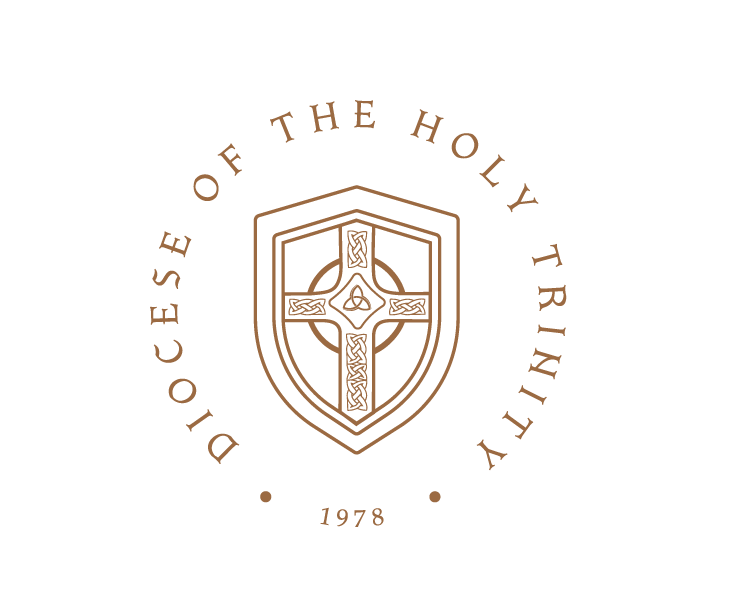The Life of Prayer
The Christian life is a life of prayer. This is reflected in the exhortation of St. Paul in 1 Thessalonians 5:17 to “pray without ceasing.” It is not possible to live a life that is pleasing to God without the grace that comes from the Holy Spirit through prayer (cf. BCP 289).
Christian faith is often understood to consist primarily of things we “believe in.” Evangelism is often thought to consist of convincing people about the truths of the faith. However, Christian faith is rooted in a relationship of communion with God in Jesus Christ through the Holy Spirit. What we believe about God helps us to understand and grow in that relationship. But the relationship is the primary thing. This relationship begins in baptism and in the experience of conversion of the heart.
In the Bible, the experience of God precedes doctrine about God. God’s people first experience God’s saving presence and power, then God reveals to them the right way to understand that experience. Israel first experienced God’s salvation in the Exodus; then God led the nation to Mt. Sinai and gave Israel the Torah—“the teaching”—that revealed to Israel the truth about God. The church first experienced salvation in Christ through the gift of the Holy Spirit on Pentecost. The Holy Spirit led the church to explain that experience in the writing of the New Testament and, three hundred years later, in the authoritative summary of biblical doctrine, the Nicene Creed.
There is harmony between doctrine and experience. We understand our experience of God, our prayer, and God’s work in our lives through the teaching of the Bible and the church. Error, even heresy, results when the two are separated. Experience explained with wrong doctrine leads people into false and harmful experiences. But right doctrine without an experience of the living God results in a dead church (cf. Rev. 2:2-4). Consequently, the focus of ministry of the church is on teaching people how to experience the power of God through prayer. This experience of prayer is explained or narrated by the teaching of the Bible and the church.
The goal of unceasing prayer is cultivated by habits of prayer that train us to live life in relationship with God. These habits of prayer have been historically practiced in the church according to what is called a “Rule.” Rule means pattern or plan. It is not “rules.” The idea of Rule comes from the Rule of St. Benedict. His Rule was the pattern of prayer practiced by his order.
The Bible reveals a timeless three-fold pattern of prayer in the church. The church from the very beginning gathered on Sunday, the Lord’s Day, to celebrate the Eucharist. The Eucharist perpetuated the worship of the temple in the light of Christ’s sacrifice, which fulfilled and brought to and end the Old Covenant sacrifices. From the beginning the church prayed at certain hours each day. This can be seen in the habits of St. Peter and Cornelius in Acts 10. Their practice was a perpetuation of the practice of Daniel in the Old Testament (cf. Daniel 6:10). The hours of prayer were morning, noon, and evening. These hours of prayer were perpetuated in the early church. In their more developed form, they became known as the “Daily Offices.” Beyond these fixed forms and times, Christians have always prayed in a variety of other ways: talking with God at all times, practicing silence or contemplation, and mediating on passages of Scripture.
Thus, the timeless Rule of prayer in the Church consists of the Eucharist, the Daily Offices, and personal prayer. As Christians participate in the common Rule in ways that fit their individual lives, they are formed into the image of Christ and are given grace and power to live for Christ in the world. The discipline of prayer is similar to the exercise routine that prepares the athlete for the contest or the practice routine that prepares the musician for the performance. Proficiency in all human endeavors requires a commitment to habits of practice or formation.
Living the life of prayer by the Rule of the Church helps us to live in God’s story rather than in the story of the world. It helps us to experience time in terms of priorities of God rather than in terms of the urgencies of the world. Common Rule also forms us as a community. Without a commitment to prayer, which includes a commitment to Bible reading, study and meditation, the life of the Christian tends to be conformed to the pattern of the world (cf. Romans 12:2).
We believe the proper focus on ministry in the church is on “spiritual direction.” This is the art and science of coaching people in prayer. We believe that the renewal of the church begins with a renewed commitment to the life of prayer in community over time.


